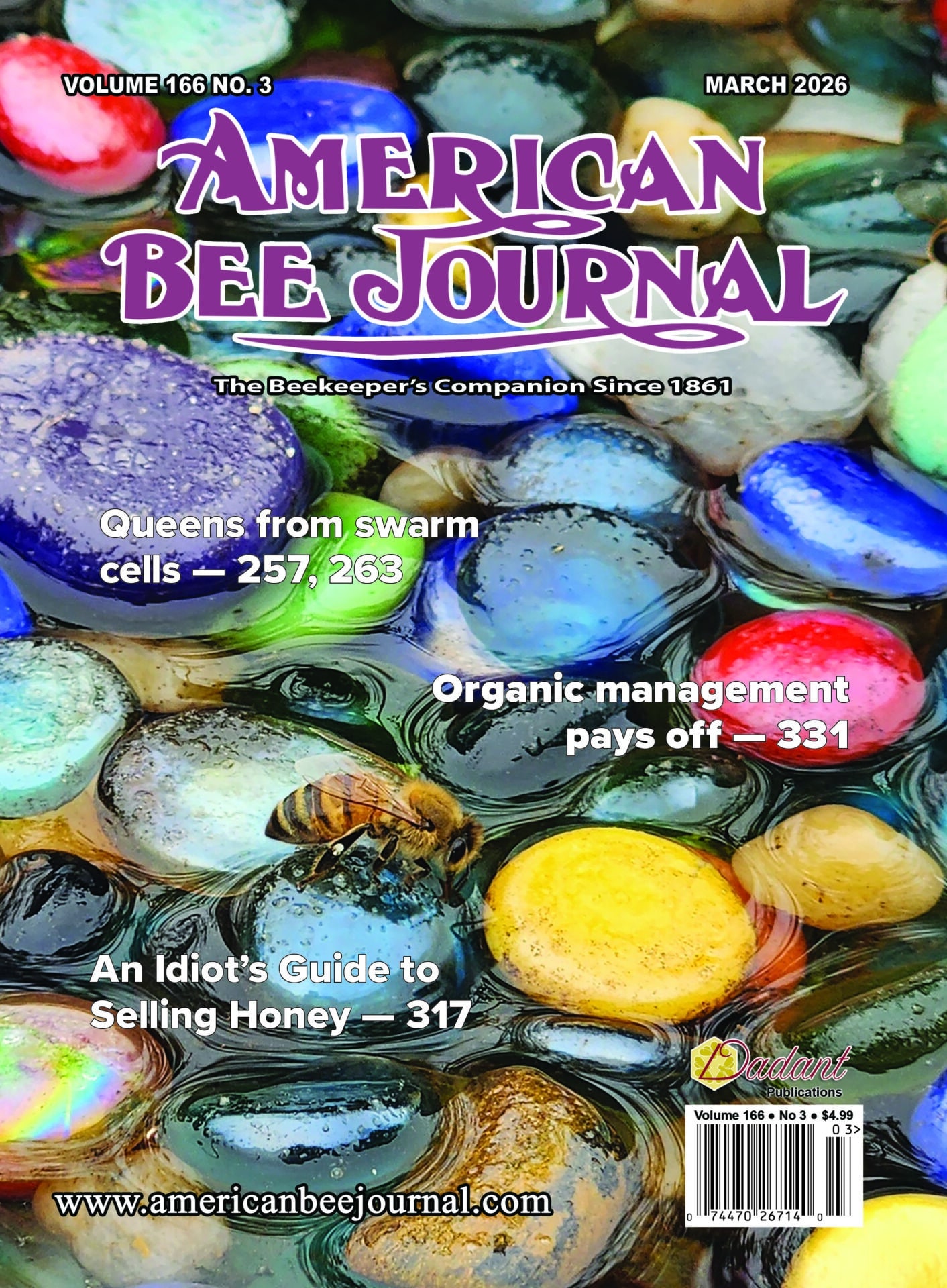Comment on USDA Reorganization
The proposed closing of BARC [The Beltsville Agricultural Research Center], the decentralization and dismantling of USDA will be devastating to agriculture, threatens our food supply, the $15 billion value of crops dependent upon honey bee pollination. This highly collaborative research team, with its global reach addresses the multifaceted, complex threats and current crisis in honey bee heath and production. The past season beekeepers reported deaths of over half the colonies in the U.S. Loss of the expertise of these stellar scientists threatens our food supply, as they are pushed into early retirement and employment abroad. The defunding and assault on science, education, health care, foreign aid and intimidation of our work force and our allies abroad is devastating globally. This is another step to dismantle our democracy.
Susan Cobey
Honey bee Insemination Service LLC
Coupeville, Washington
Collective Motion
I read Rusty Burlew’s most recent contribution to ABJ [“Collective Motion: How Honey Bees Differ from the Rest,” September] with much interest; it was written with the quality of research, breadth of scope and clarity of explanation that is characteristic of her articles.
There is one aspect of collective motion that is peculiar, although probably not unique, to honey bees. With most species it is the young who mature and leave the nest, leaving the mother to raise more brood. Think of nesting birds, bears or foxes in dens, wild dogs and coyotes, even ourselves. With many insects, including a honey bee colony for much of the year, the mother and her offspring co-exist, except for one occasion when a honey bee queen leaves the nest in a swarm, leaving her brood to the tender mercies of worker bees and a developing queen.
Why does a honey bee queen “abandon” her home and brood? I think there are two possible reasons, both evolutionary in origin, one of which is obvious, the other less so. I don’t want to be prescriptive to Rusty, and am hoping that she might address this apparent conundrum in a future article.
Jeremy Barnes


